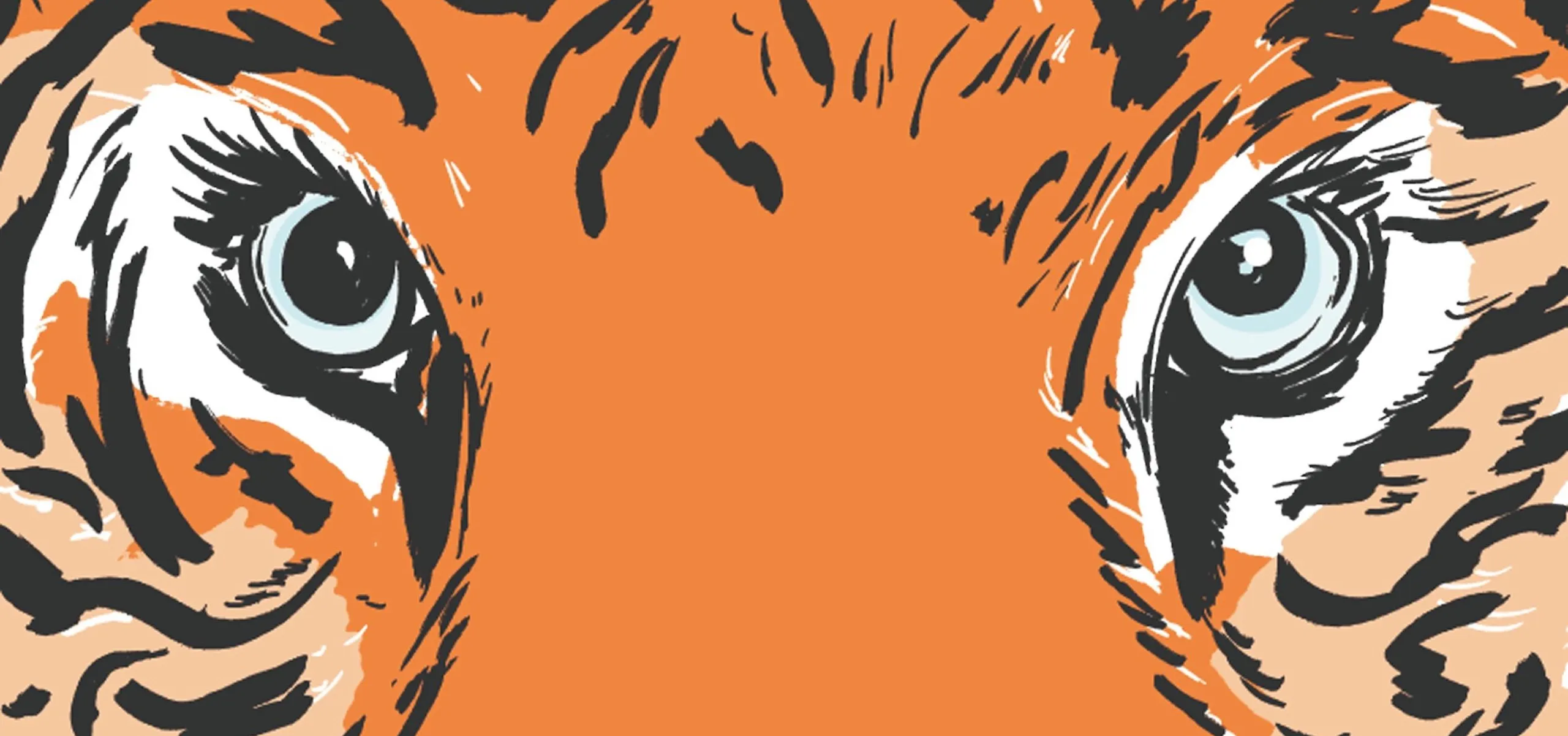Traditional folk stories about tigers still told today
As the Year of the Tiger is upon us, tiger imagery is everywhere, from rhyming couplets (春联) to handbags, postage stamps, and car adverts. Tigers appear frequently in Chinese literature and folk stories, with many idioms (chengyu) invoking the animal: Active , good-natured children are “虎头虎脑 (tiger head and tiger brain)”; tough, stocky men are “虎背熊腰 (tiger’s back and a bear’s waist)”; and people full of vigor are “生龙活虎 (lively dragon and animated tiger).”
In folk stories of old, often where these four-character idioms arise, the tiger is not always the brave and powerful animal it is made out to be today. Here are five famous folk stories involving tigers from Chinese history.
Wu Song fights the tiger 武松打虎
Perhaps the most widely known story about a tiger in China, this tale comes from the classic 14th-century novel Outlaws of the Marsh (《水浒传》), in which Wu Song is a heroic warrior.
One day, as Wu is traveling along the road to meet his brother, he stops for a drink at an inn at Mount Jingyang where he sees a sign warning of a vicious tiger in the mountains that had killed many previous travelers. Wu was unconvinced, believing the innkeeper wrote the sign to encourage travelers to spend the night in his inn at the foot of the mountain. After drinking 18(?!) bowls of alcohol, he insisted climbing the mountain alone at night to prove the innkeeper wrong.
Soon after entering the mountains, Wu passed out drunk and lay down on a rock. Just when he was about to fall asleep, he suddenly felt a strange gust of wind. Wu quickly turned around to a tiger charging toward him. He dodged the animal just in time, and a fight ensued.
After a fierce fight, Wu jumped onto the back of the tiger, grabbed its head with his left hand, and used his right fist to pummel the beast’s eyes, nose, and ears. Gradually, the tiger succumbed to Wu’s assault, and died.
In the story, Wu is lauded by the local government for slaying the tiger, and his reputation as a tiger-fighting hero spreads far and wide. Though he gets into many other adventures in the book, whenever people nowadays hear Wu Song’s name, they nearly always recall him as the hero who killed a tiger with his bare hands.













